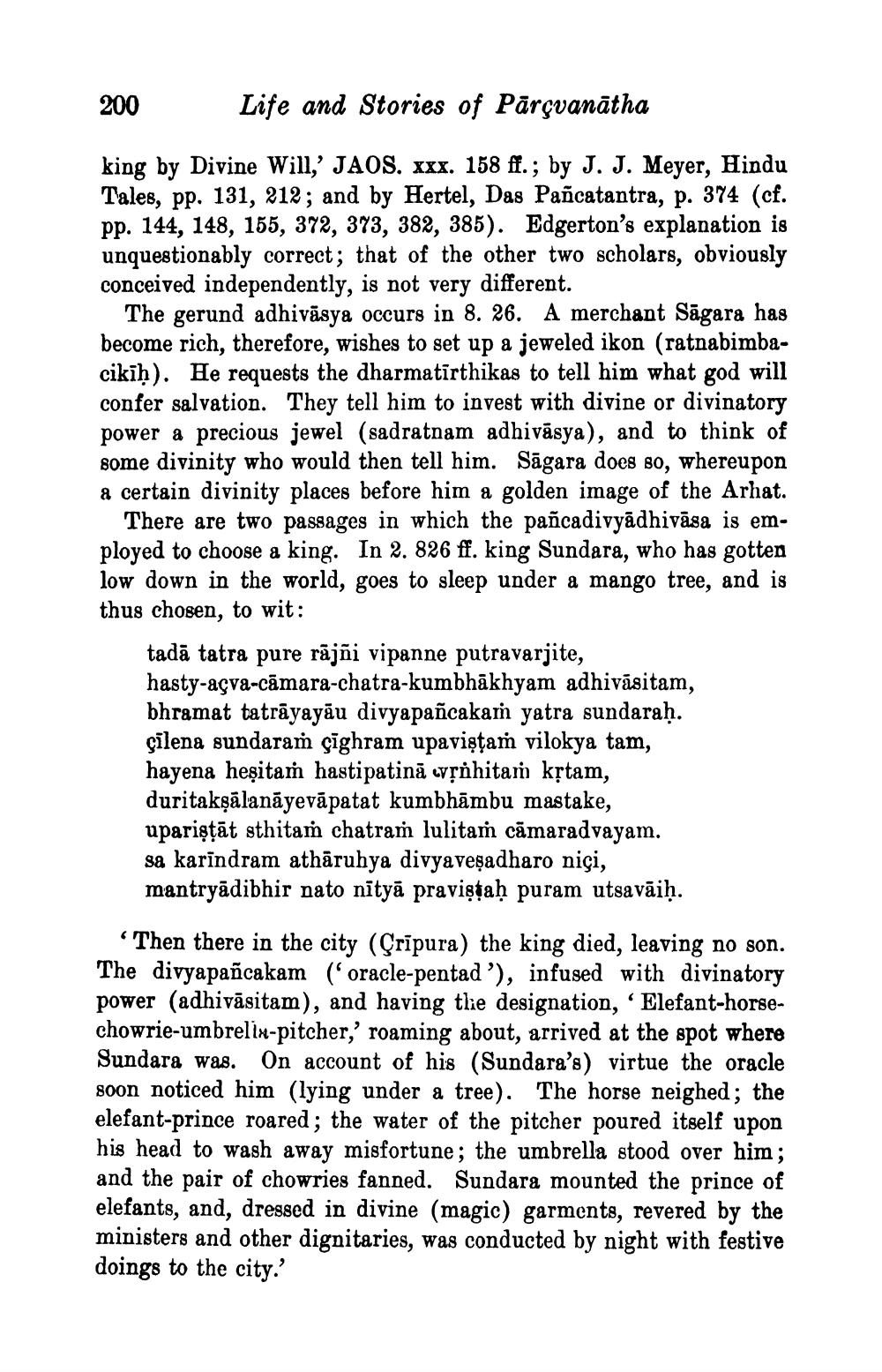________________
Life and Stories of Pārçvanātha
king by Divine Will,' JAOS. xxx. 158 ff.; by J. J. Meyer, Hindu Tales, pp. 131, 212; and by Hertel, Das Pañcatantra, p. 374 (cf. pp. 144, 148, 155, 372, 373, 382, 385). Edgerton's explanation is unquestionably correct; that of the other two scholars, obviously conceived independently, is not very different.
200
The gerund adhivasya occurs in 8. 26. A merchant Sagara has become rich, therefore, wishes to set up a jeweled ikon (ratnabimbacikiḥ). He requests the dharmatirthikas to tell him what god will confer salvation. They tell him to invest with divine or divinatory power a precious jewel (sadratnam adhivasya), and to think of some divinity who would then tell him. Sāgara does so, whereupon a certain divinity places before him a golden image of the Arhat.
There are two passages in which the pañcadivyādhivāsa is employed to choose a king. In 2. 826 ff. king Sundara, who has gotten low down in the world, goes to sleep under a mango tree, and is thus chosen, to wit:
tadā tatra pure rājñi vipanne putravarjite, hasty-açva-camara-chatra-kumbhākhyam adhivāsitam, bhramat tatrayayāu divyapañcakam yatra sundaraḥ. çilena sundaram çighram upaviṣṭam vilokya tam, hayena heṣitam hastipatina wṛňhitam kṛtam, duritakṣālanayevāpatat kumbhāmbu mastake, upariṣṭāt sthitam chatram lulitaṁ camaradvayam. sa karindram atharuhya divyaveṣadharo niçi, mantryādibhir nato nitya pravistaḥ puram utsavaiḥ.
"Then there in the city (Cripura) the king died, leaving no son. The divyapañcakam ('oracle-pentad'), infused with divinatory power (adhivāsitam), and having the designation, Elefant-horsechowrie-umbrelix-pitcher,' roaming about, arrived at the spot where Sundara was. On account of his (Sundara's) virtue the oracle soon noticed him (lying under a tree). The horse neighed; the elefant-prince roared; the water of the pitcher poured itself upon his head to wash away misfortune; the umbrella stood over him; and the pair of chowries fanned. Sundara mounted the prince of elefants, and, dressed in divine (magic) garments, revered by the ministers and other dignitaries, was conducted by night with festive doings to the city.'




